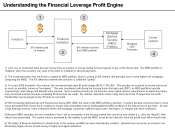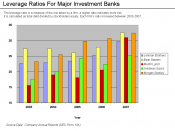Companies should ask three critical questions as they shift from cost-cutting to expansion mode.
In recession, most companies know what they need to do: cut costs. But in recovery, corporate muscles that have gone unexercised must be flexed anew. In preparation, boards and top managers would do well to ask three basic questions.
What is success?
In earlier eras, the success of a company was judged by a mixture of measures, including its fundamental economic performance, its reputation with customers and employees, its stock price, and its responsibility to society at large. That changed in the 1980s and 1990s. Academic theory, the takeover boom, and shareholder activism led to a focus on share-holder value, all too often measured through the narrow prism of short-term movements in stock prices. This raises troubling questions as companies look to manage the next era of growth while avoiding the pitfalls of the last.
First, are we rewarding and punishing management teams for something over which they have relatively little control? Research suggests that the relationship between a company's fundamental economic performance and share price over the near term is loose at best.
Factors outside management's control, such as investor sentiment and overall market conditions, can have a major impact on share prices. Did all those CEOs really deserve to get rich from the rising tide of the 1990s? Likewise, some strong management teams have doubtless been punished unfairly during the downturn.
Second, how do we reconcile the different time frames of shareholders and management? The average stock is held for less than a year by institutional investors and for even shorter periods by hedge funds. Yet the investments managers make, and the payoffs from their decisions and strategies, occur over much longer periods. There needs to be closer alignment and understanding not just of...


